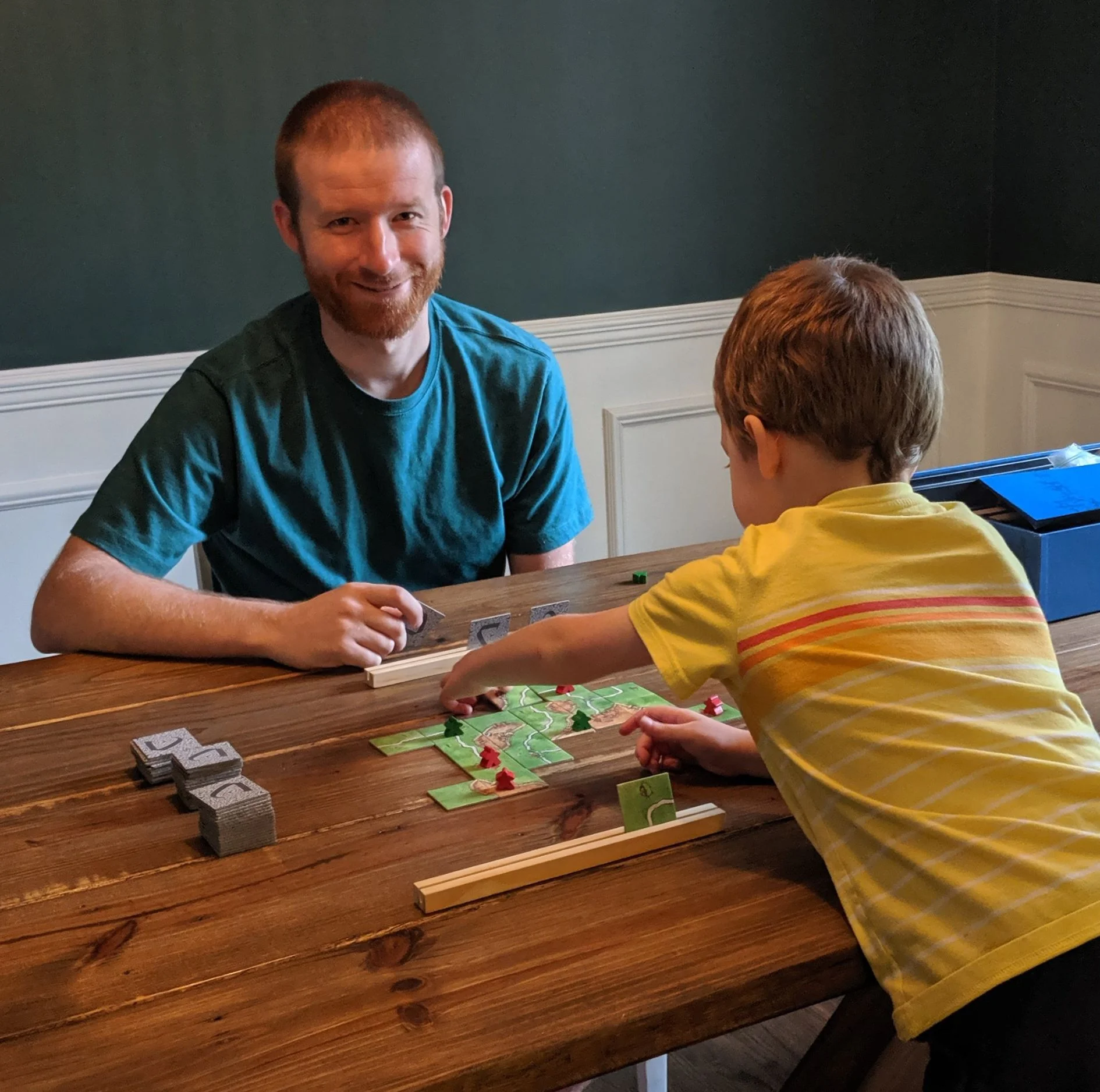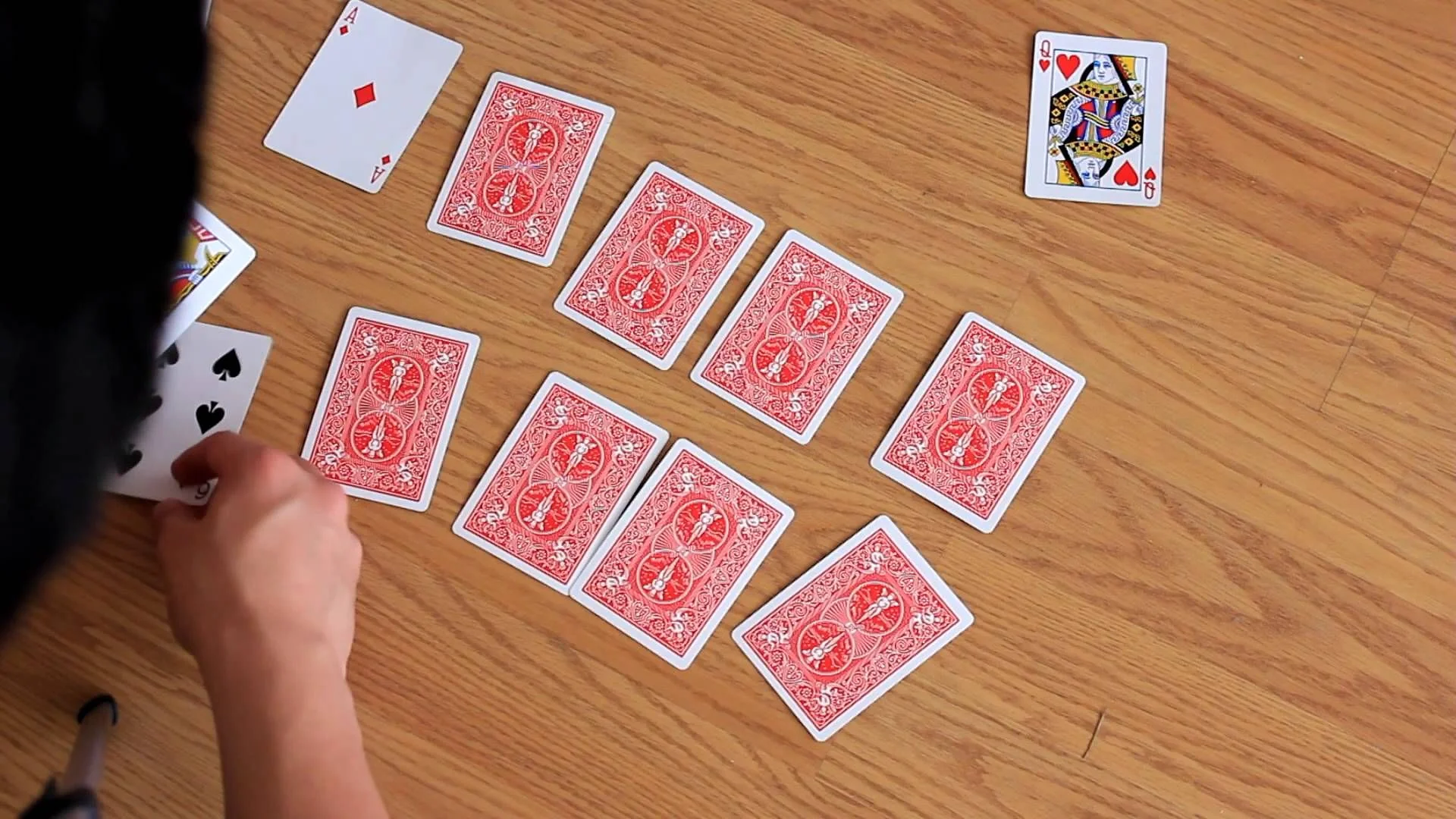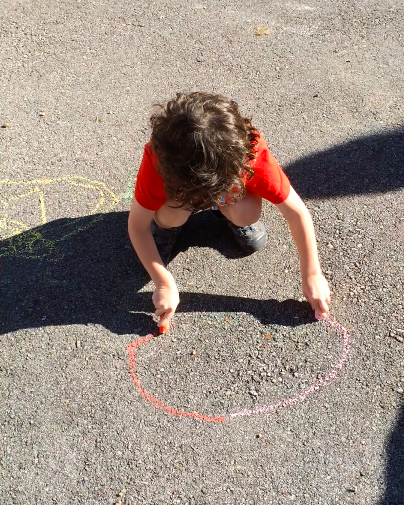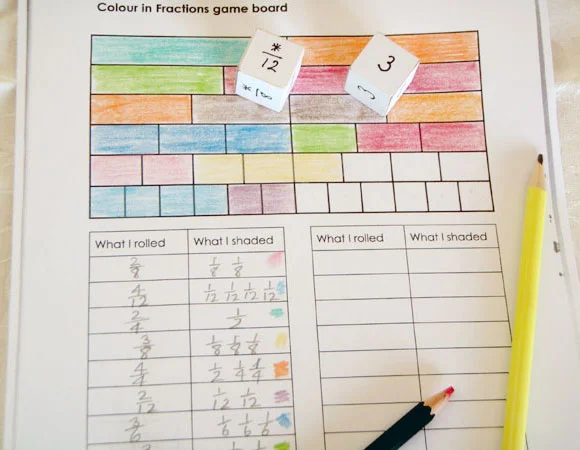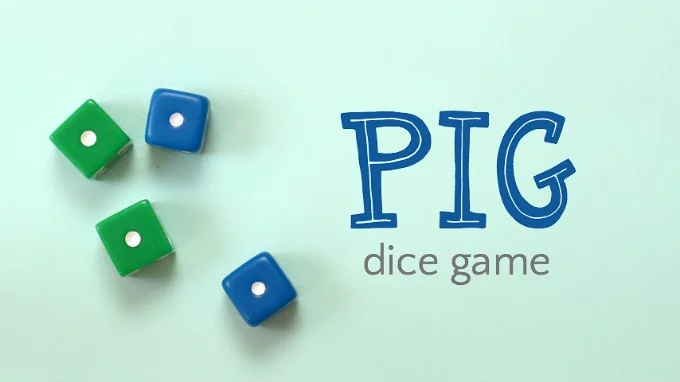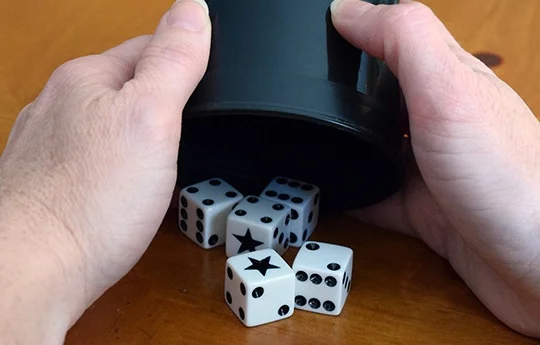Today we have a guest! A couple of months ago, I got an email from Kyle DeBoer, a math teacher at Advent Episcopal School here in Birmingham. We met up in his class to chat about math, games, and whatever else came up.
The second I saw the game closet in his classroom, I knew I had met one of my people.
(Here is picture of part of it. I mean, come on! Amazing.)
Kyle runs a strategy games club in the afternoons at his school, so he's seen firsthand the ways that board and card games can help kids develop skills that can lead them to success in math. And he's here to tell you all about it.
So take it away, Kyle!
Last weekend, my wife and I took the older two kids up to New York City for the first time. For a couple of kids who think of downtown Birmingham as The Big City, this was quite an experience!
Specifically, we were all struck be how much walking we ended up doing. At one point, on the way to MoMA, my four-year-old daughter just had to stop. We found our way to Bryant Park and sat at a table to rest up for a few minutes.
Fortunately, I had happened to bring a deck of cards with me! I pulled them out and taught my kids a new game that I had just learned the week before called Garbage.
I think Garbage is the perfect game for these sorts of moments - you need your preschooler occupied with a game that is easy to learn and fast to play. Not only that, but the game hits that sweet spot of number recognition and counting that my daughter is at the perfect age for.
I'm particularly proud of this week's activity: My son invented it himself!
A couple of years back, my son found some chalk at a birthday party. He took a piece of chalk in each hand and started drawing on the driveway in symmetrical lines and curves; he almost looked like a conductor of a symphony, swinging his hands back and forth in time with each other.
The math teacher in me immediately saw an opportunity to build an activity out of this artistic idea: Mirror drawing!
Now, of course, my son isn't the first kid to happen upon this idea. But that's just a testament to its power as a fun way to get kids thinking about symmetry.
Since that time, I've come up with several variations on mirror drawing and tried them with different age groups. No matter the age, kids seem to love mirror drawing. Frankly, I think it's pretty fun myself! Below are some of my favorite activities to do with mirror drawing.
One reason that games make such great teaching tools is that they give kids a reason to care about the math they are using.
Hand a kid a worksheet full of multiplication problems, and they might balk. But play a game where multiplication is used to calculate the score, and suddenly they have a desperate need to find out what 6*8 is.
Similarly, football fans in 3rd grade are lucky: the 7s times table, notoriously the most difficult to memorize, is a breeze if you've spent the past few years counting touchdowns. Whats 5*7? That's just five touchdowns: 35 points.
Anyway, ever since I launched this newsletter I've been looking for a game that would be fun and strategic, yet help kids grapple directly with the most challenging topic in elementary math: fractions.
I think I found that game. I've seen it by a couple names, but I'll just call it Fraction Fill-In.
As a kid, I always loved the game show Lingo. In the game, players would have five chances to guess a five-letter word. After each guess, their word would light up to let them know which letters were correct, and which letters were in the word but in the wrong position.
These little deduction puzzles are a great way for kids to think strategically, so I perked up when I found a nice mathematical variation: What's My Number?
This is another one of those games that you can pull out in a waiting room or at a restaurant, rather than simply surrendering your phone to your kids. All you need is a piece of paper and a pencil.
My son has been working with addends a ton this year in school. Every so often, he brings home a math packet that is full of these things called number bonds, which help young learners break a larger number into two smaller pieces.
He's gotten pretty good at addends (probably all that dice rolling and score keeping), so I decided to give him a little puzzle to keep him occupied when his math packet feels simplistic.
I call it How Many Ways Can You Add to 10?
It's not often that I find a game that I find a game that is easy to teach, free, and beloved by both my 6-year-old son and my 8th grade students.
This game is perfectly suited for a 2nd or 3rd grader who is beginning to learn about multiplication, but it's accessible for younger kids and strategically fun for older ones as well.
I found How Close to 100? through Jo Boaler's helpful site YouCubed, which has a lot of multi-age math tasks and games.
Y'all wanna see a magic trick?
Alright, I have in my hands ten cards. Nothing up my sleeves. Just watch and enjoy:
Let's say I make you a wager. You roll this die a certain number of times. At the end, I'll give you $100, so long as you never roll a 1. If you do end up rolling a 1, then you have to pay me $100.
How many rolls of the dice would you risk? Surely, you'd roll once, right? After all, the odds of winning are 5 out of 6. But only a fool would roll that die 30 or 50 or 100 times in a row.
So when does some outcome change from "unlikely" to "likely"? And how can you help your kids build an intuition for that idea, before they start wasting all their money on lottery tickets?
Maybe a quick game of Pig might help.
I spent my entire childhood playing with LEGO sets. I hardly ever built the designs on the boxes. Instead, my friend Turner and I would try to invent our own space ships, robots, and bat caves, using whatever bricks we had handy.
My son, on the other hand, prefers to build exactly what is on the box and then set it on the shelf for months at a time. So when I cajole and encourage him to make something from his own imagination, I don't often get far.
Fortunately, my friend Joel Bezaire shared a perfect way to turn LEGO building into a game. It's called the LEGO Blindfold Build Challenge.
If you are a reader of Games for Young Minds, then you are probably either:
a) A parent of kids who, after a long Winter Break, need something to keep them entertained so they will Stop. Screaming. At. Each. Other.
b) A teacher who is trying to think of a fun activity for the first day of the new semester.
c) All of the above
I fall into that third category, so I thought I'd share a game that is always one of my biggest hits of the school year: Liar's Dice. This is also a perfect home-for-the-holidays game, since you can easily accommodate three, four, or more players. As long as you have enough dice for everyone, everyone in the family can join!
Sometimes I want a game that will take up an entire hour, the sort of game that can absorb me and my kids on a rainy afternoon. On those days, I reach for Qwirkle or Mastermind.
But other times, I just need a game that will keep my kids occupied for ten minutes while we wait for the dentist to call us back. In those moments, I am looking for a game that is quick, fun, and easy to learn.
Dots and Boxes is a perfect game for these situations. All you need is a pencil and paper (or a crayon and the back of a kid's menu). Of course, knowing me, I've found all sorts of deeper math in this simple game. But first let's just take a look at how the game is played.

